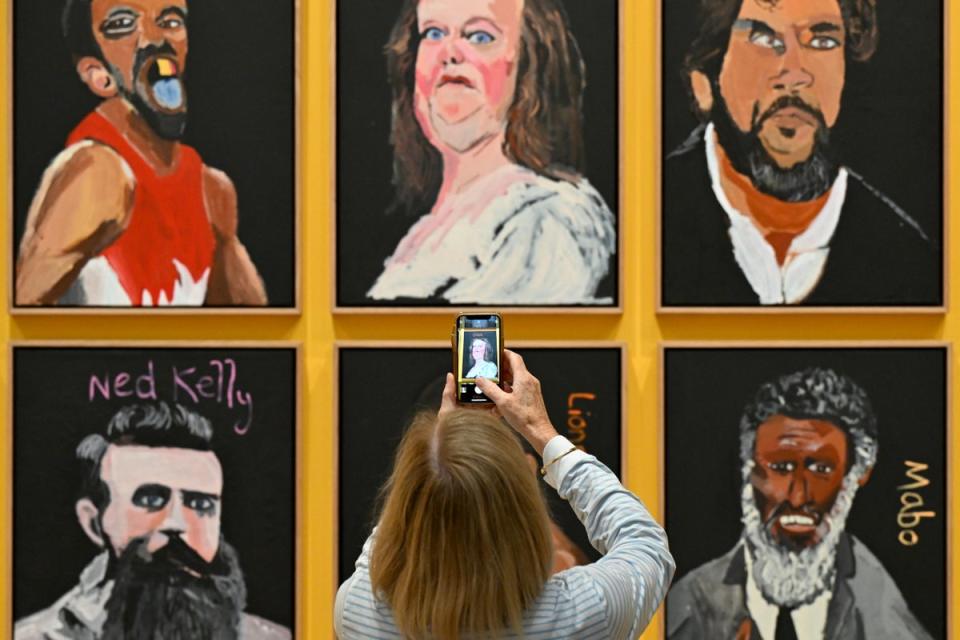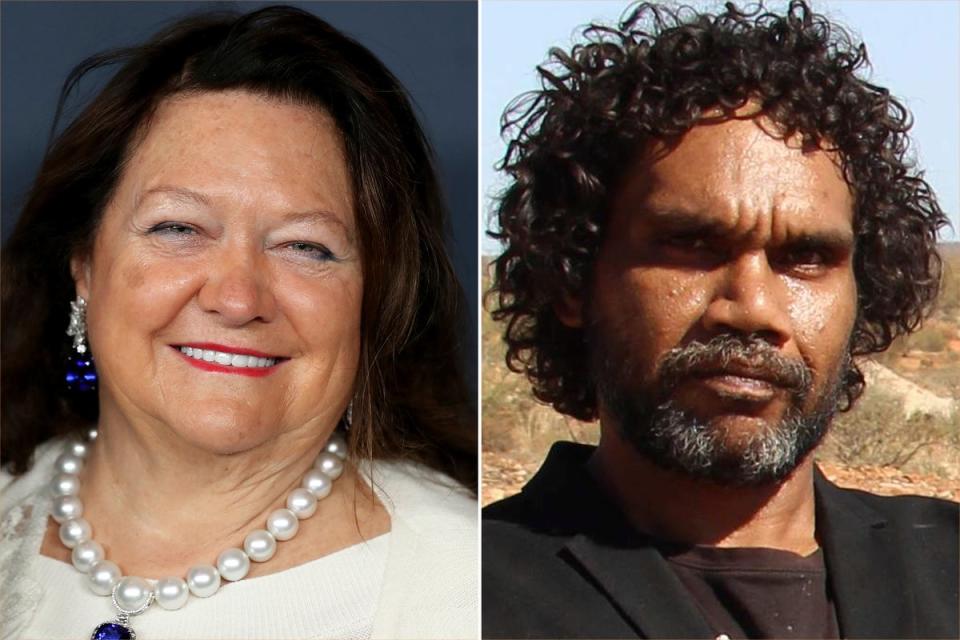How the Streisand Effect came to haunt Australia’s richest woman
A failed attempt by Australia’s richest person to remove an unflattering portrait from exhibition has had the opposite effect of inviting more attention to the artwork and scrutiny of her own beliefs and background.
Gina Rinehart, 70, is the executive chairwoman of Hancock Prospecting, a mineral exploration and extraction company worth an estimated $30.6bn (£15.9bn). She demanded the country’s National Gallery remove what she saw as an unflattering portrait of her from display. The gallery refused.
The portrait was made by award-winning Aboriginal painter Vincent Namatjira and features Rinehart in his signature caricature style. It is part of his “Australia in Colour” series, a satirical look at 21 influential people who played a part in shaping Australia such as Rinehart, Queen Elizabeth II, and former prime minister Scott Morrison.
By demanding that the gallery take down her painting, Rinehart fell prey to the Streisand Effect, named after American actor Barbra Streisand whose 2003 attempt to remove aerial photos of her California beach house by suing the photographer ended up costing her $177,000 in legal fees and garnering far more interest in the images.
In Rinehart’s case, the gallery’s refusal to remove the portrait and Namatjira’s response to the demand have sparked debate about art and censorship in Australia.
Nick Mitzevich, the gallery’s director, said he “welcomes the public having a dialogue on our collection and displays”.
Namatjira said: “People don’t have to like my paintings, but I hope they take the time to look and think, ‘Why has this Aboriginal bloke painted these powerful people? What is he trying to say?’”

After Rinehart’s demand became known, the painting appeared in several newspapers and on digital news platforms, even getting a mention on US talk show The Late Show with Stephen Colbert.
The National Gallery saw a “noticeable increase” in visitors as well, The Guardian reported.
A similar fate befell tech mogul Elon Musk, who tried to ban an account on X, then Twitter, that tracked the use and carbon emissions of his aircraft, sparking scrutiny of his frequent use of private jets and his boast of being a proponent of free speech.
Rinehart’s attempt at censorship led to a scrutiny of her own beliefs and why she made it to Namatjira’s series in the first place.
It turned out her father Lang Hancock, who founded Hancock Prospecting, had faced criticism for his remarks about mining on Aboriginal land, which many Indigenous Australians consider to have been stolen from them.
“Nothing should be sacred from mining whether it’s your ground, my ground, the black fellow’s ground or anybody else’s. So the question of Aboriginal land rights and things of this nature shouldn’t exist,” Hancock once said, reported News.com.au.

Rinehart herself, in an article written in 2012, argued that if people “jealous of those with more money” wanted to be richer, they needed to “do something to make more money yourself − spend less time drinking or smoking and socialising, and more time working”.
Her views make it clear why she made it to Namatjira’s list.
And thanks to her attempt to remove the caricature from public view, her name will in perpetuity be attached to Namatjira’s portrait – as an online search of her name will show.
Namatjira’s work, meanwhile, now has a new and wider audience.
The gallery has said Namatjira’s exhibition will run in full until the closing date of 21 July 2024.


